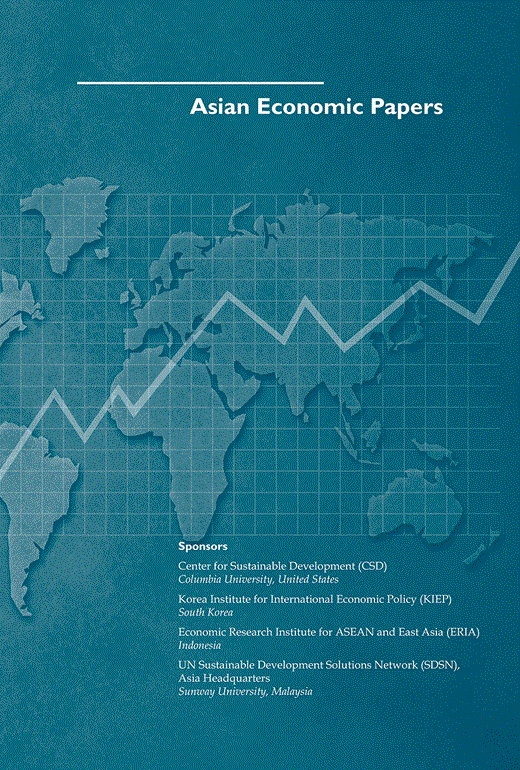发达国家和发展中国家全球价值链中的贸易与人力资本*
IF 5.3
3区 经济学
Q1 ECONOMICS
引用次数: 3
摘要
摘要本文研究了43个国家和56个部门的人力资本对全球价值链中双边国内增值贸易的影响。与以往的研究相比,本文估计了一个增值贸易的近似重力模型,以捕捉人力资本在通过增值贸易确定跨境生产联系方面的作用。研究结果表明,出口国和进口国的国内增值贸易流量在很大程度上取决于人力资本的发展。研究结果表明,技能密集度对全球价值链中双边国内增值贸易具有积极影响。我们还观察到,技能对发展中经济体的全球价值链增值贸易产生了更大的积极影响。该文件强调了贸易自由化和前瞻性人力资本发展政策对发展中国家在全球价值链增值贸易中的竞争力的重要性。本文章由计算机程序翻译,如有差异,请以英文原文为准。
Trade and Human Capital in Global Value Chain in Developed and Developing Countries*
Abstract This paper investigates the effects of human capital on bilateral domestic value-added trade in global value chains (GVCs) for 43 countries and 56 sectors. In contrast to previous studies, this paper estimated an approximate gravity model of value-added trade to capture the role of human capital in determining the cross-border production linkages via value-added trade. The results show that the domestic value-added trade flows depend critically on human capital development in both exporting and importing countries. The results indicate a positive effect of skilled intensity on bilateral domestic value-added trade in GVCs. We also observe a larger positive effect of skills on the GVC value-added trade for the developing economies. The paper highlights the importance of trade liberalization and forward-looking human capital development policies for the competitiveness of the developing countries in the value-added trade in GVC.
求助全文
通过发布文献求助,成功后即可免费获取论文全文。
去求助
来源期刊

Asian Economic Papers
ECONOMICS-
CiteScore
7.50
自引率
0.00%
发文量
16
期刊介绍:
The journal Asian Economic Papers (AEP) is supported by several prominent institutions, including the Center for Sustainable Development at Columbia University in the United States. This shows that there is a strong emphasis on sustainable development within the journal's scope. Additionally, the Korea Institute for International Economic Policy in South Korea, the UN Sustainable Development Solutions Network (SDSN) in Malaysia, and the Economic Research Institute for ASEAN and East Asia in Indonesia also sponsor AEP. The articles published in AEP focus on conducting thorough and rigorous analyses of significant economic issues pertaining to specific Asian economies or the broader Asian region. The aim is to gain a deeper understanding of these issues and provide innovative solutions. By offering creative solutions to economic challenges, AEP contributes to the discourse and policymaking that impact the Asian economies and region as a whole.
 求助内容:
求助内容: 应助结果提醒方式:
应助结果提醒方式:


